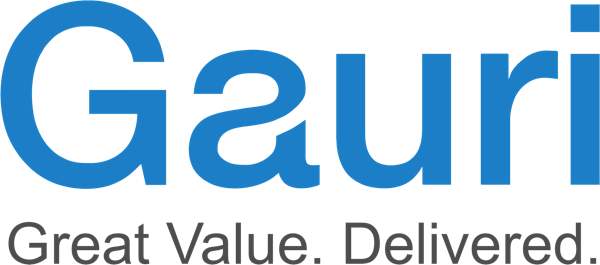Salesforce CRM is a fantastic solution for realising your CRM strategy, but it’s a part of a larger enterprise application landscape. Creating an integrated CRM solution through Salesforce integration with backend enterprise solutions such as SAP ERP is essential for achieving a true 360° view of the customer.
A 360° view of the customer can provide hyper-personalised engagement resulting in customer delight and loyalty. Unfortunately, we have seen that Salesforce integration best practices are missed out on in many CRM implementation strategies. This creates silos of technology stacks and integration is always an afterthought.
Gauri specialises in Salesforce CRM and SAP ERP back end integration where we help you provide the best possible customer experience based on your Salesforce CRM, fully connected in real-time to all your SAP ERP backend processes and data. We provide a modern and lightweight end-to-end integration solution, making sure all your Salesforce solutions are properly integrated with your SAP ERP and are matched to your needs and requirements.
Benefits of Salesforce Integrations
When Salesforce was introduced at the dawn of this millennium, it came to revolutionise the business industry in several ways. As the most powerful CRM solution on the market, it has completely changed the sales of operations and customer engagements for many businesses and offers a range of innovative products and system integrations.
Seamless Salesforce CRM – SAP ERP integration
One of the most common, and most beneficial, SAP integration scenarios is between SAP ERP and Salesforce CRM. When properly integrated and configured, the SAP – Salesforce integration will allow a company to streamline and fully automate their business processes. The integration is mainly used to synchronise data between the two systems, eliminating the need for dual data to save time and money, resulting in fewer data redundancies and errors caused by manual data entry, and increasing company agility to act on new information quickly.
Brings together disparate systems
With the Salesforce platform, you can bring together disparate systems, building a unified view of your customers where employees won’t have to switch systems to get what they need. By integrating Salesforce with your tools and applications, organisations can tap into previously unknown resources, increase their productivity, and bring significant improvements to their sales and marketing processes.
Full integration support for 3rd party solutions
Salesforce has the potential to be the central part of any customer engagement workflows. And if you want to identify and experience its true potential, then we suggest integrating it with all your systems, with 3rd party business applications, APIs, and other resources. Salesforce is mostly used by organisations to manage data, nurture leads, and provide customer service. But by integrating various 3rd party applications and tools with Salesforce, you can expand its functionality, streamlining the CRM with business applications such as G Suite, Slack, LinkedIn, Dropbox, and thousands upon thousands of other integrations.
Increases productivity, flexibility, versatility…
Integrating Salesforce with other systems and applications comes with numerous benefits already touched upon. Each integrated application, tool and API offers a set of functionalities and benefits, where you can pick and choose according to your wants and needs. Salesforce integration seamlessly connects various systems, creating a single point of contact for all your data flows, customer interactions, reporting, and internal communication.
Salesforce integration checklist
A Salesforce integration requires careful considerations on several levels. It’s highly recommended to familiarise yourself with each component of the Salesforce integration to make sure you don’t waste time and money on fruitless efforts. Following this checklist, you will gain a better insight into what integrations will benefit your company
1. Planning and documentation
The single most important element of a Salesforce integration is and will always be the users. What are their needs and requirements? Proper planning and documentation of the integration are essential to gain further insight into the user’s needs and integration project on why you need a specific integration and the benefits it provides. It should include the following steps:
- Identifying your business goals
- Formulating the mission and vision of your company
- Identifying the owner and data involved in the application
- Learning and understanding integration standards and best practices
2. Applications
The application(s) plays a central role in any integration project, and your understanding of them, their functionality and requirements, often determine the success of the integration. Research and explore the applications and how they would integrate within your organisation. It should include:
- Preparation of relevant data
- Insight into the dependency of the application(s)
- Consideration of API limits
- Research about the function and flexibility of each application
3. Data flow
Last but not least, mapping out the data flows across your organisation. It’s necessary to figure out what applications you require, and what applications you can use, to identify the best solutions for your organisation. Map the data flow of your organisation through:
- Identifying all data endpoints
- Provision of effective connection for custom and 3rd party integration tools
- Determining data delivery performance of potential applications
The complexity of a Salesforce integration
Few organisations possess the internal resources to perform a Salesforce integration on their own. Instead, many choose to hire a Salesforce integration partner to not only perform their required system integrations, but also receive support in identifying what integrations will benefit their organisation the most. This is not only safer, but it’s also often the more cost-effective option. System integration projects are just that – projects. While a Salesforce integration is complex, the work is finite making it difficult in justifying a full-time staff employee solely working on integrating systems.
Common mistakes leading to failed integration projects
A large portion of Salesforce integration projects either fail or are not fully optimised. As mentioned, a Salesforce integration is a rather complex process, and there are countless pitfalls one can end up in such as:
- Starting an integration project without a clear scope
- Propagation of bad data
- Not documenting systems of record
- Exceeding API limits or ignoring data rate limits
- Implementation of improver system architecture
Avoid them together with Gauri. Save time and money with a Salesforce integration partner, contact us today.
Gauri a UK-based Salesforce Partner
How we have imbibed Salesforce Integration best practices
Customers who choose Salesforce implementation partners based on their Salesforce expertise alone are bound to be rudely shocked when it comes to dealing with complex scenarios like in Salesforce Service Cloud, Service contract, Field Service or for that matter: integrated Salesforce Sales Cloud. These Salesforce integrations require in-depth knowledge about technology and processes across the CRM and ERP landscape. And a very few UK based Salesforce Partners can claim expertise in these areas.
Salesforce Integration Accelerators
Using our decades of experience in implementing CRM solutions and deep understanding of customer needs we have developed accelerators based on Salesforce integration best practices which significantly reduce implementation costs and time while ensuring robust solutions of high quality. This integration solution provides a foundation providing the right platform for data-driven decision making using Salesforce Reporting.
Gauri Salesforce Integration Accelerators
- Salesforce Customer 360° view on SAP ERP
- Salesforce Integration to SAP and S4HANA ERP
- Salesforce Integration to HR solutions like Workday or SuccessFactors
- Ecommerce integration with SAP and Salesforce
- Salesforce Integration 3rd party solutions or in-house applications
- Salesforce Integration with Social media channels like Twitter, Facebook, and LinkedIn
- Salesforce Integration with Telephony software like New Voice Media, Avaya, Cisco
- Salesforce Integration with GIS solutions
These accelerators can be deployed quickly and provide a head start for Salesforce integration. Our Salesforce integration consultants work with multiple iPaaS solutions like Mulesoft, Talend, Boomi or SAP PO or Data services.
How our Salesforce Integration consultants are different
Our Salesforce practise has been built on a solid foundation on implementing and supporting several CRM solutions in SAP over the past couple of decades. We have brought this experience in building a team of Salesforce Integration consultants who are multi-skilled right from Salesforce, to middleware like Mulesoft and Talend, to SAP ERP, a key skill to achieve a truly integrated CRM solution. Our Salesforce Integration consultants are well versed with Salesforce Integration best practices to ensure project success. Also, we use a hybrid agile methodology using a right shore model which we have been perfecting over the last 15 years since our inception. This guarantees proactive and collaborative engagement with our customers with complete transparency through the project. As Salesforce Gold partners we ensure that our Salesforce consultants are abreast with the latest technology features through certifications and accreditation.
We bring the end-to-end solution and business understanding, a mature delivery methodology, highly motivated Salesforce consultants and are driven by our ethos to maximise the value that we deliver to our customers through fair play, transparency, and a spirit of partnership. Our customers are the biggest advocates, we have around 95% customer retention.
Watch this webinar to learn how we helped Ideal boilers achieve Salesforce Integration with SAP.
If you are embarking on a CRM journey or want help or advice or assistance with your existing Salesforce Integration, then please contact us now.

